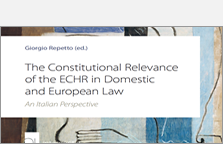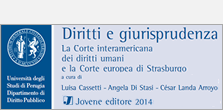Copenhagen Declaration
The High Level Conference meeting in Copenhagen on 12 and 13 April 2018 at the initiative of the Danish Chairmanship of the Committee of Ministers of the Council of Europe (“the Conference”) declares as follows:
1.
The States Parties to the Convention for the Protection of Human Rights and Fundamental Freedoms (“the Convention”) reaffirm their deep and abiding commitment to the Convention, and to the fulfilment of their obligation under the Convention to secure to everyone within their jurisdiction the rights and freedoms defined in the Convention. They also reaffirm their strong attachment to the right of individual application to the European Court of Human Rights (“the Court”) as a cornerstone of the system for protecting the rights and freedoms set forth in the Convention.
2.
The Convention system has made an extraordinary contribution to the protection and promotion of human rights and the rule of law in Europe since its establishment and today it plays a central role in maintaining democratic security and improving good governance across the Continent.
3.
The reform process, initiated in Interlaken in 2010 and continued through further High Level Conferences in Izmir, Brighton and Brussels, has provided an important opportunity to set the future direction of the Convention system and ensure its viability. The States Parties have underlined the need to secure an effective, focused and balanced Convention system, where they effectively implement the Convention at national level, and where the Court can focus its efforts on identifying serious or widespread violations, systemic and structural problems, and important questions of interpretation and application of the Convention.
4.
The reform process has been a positive exercise that has led to significant developments in the Convention system. Important results have been achieved, in particular by addressing the need for more effective national implementation, improving the efficiency of the Court and strengthening subsidiarity.
5.
It has been agreed that, before the end of 2019, the Committee of Ministers should decide whether the measures adopted so far are sufficient to assure the sustainable functioning of the control mechanism of the Convention or whether more profound changes are necessary. Approaching this deadline, it is necessary to take stock of the reform process with the goal of addressing current and future challenges.[…]
Scarica il documento completo | Download full document
Leggi tutto/Read more













